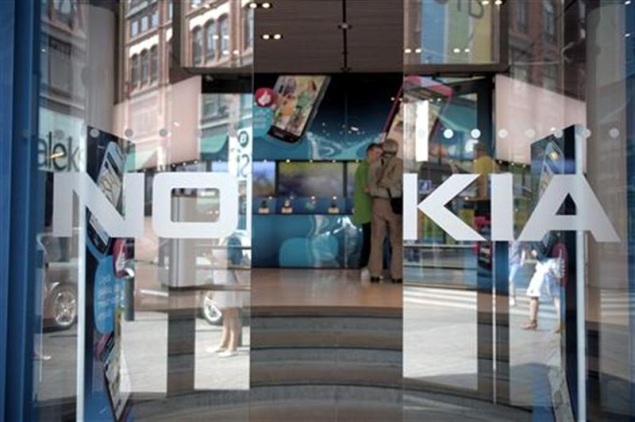- Home
- Mobiles
- Mobiles News
- Nokia sues RIM for breach of contract over cellular patents
Nokia sues RIM for breach of contract over cellular patents

The struggling Finnish cellphone maker agreed with RIM in 2003 on a license that covers patents on "standards-essential" technologies for mobile devices. RIM has since claimed the license should also have covered patents for non-essential parts and it filed arbitration proceedings with the Stockholm Chamber of Commerce in March 2011.
Earlier this month, the Arbitration Institute of Stockholm Chamber of Commerce ruled against RIM's claims.
Nokia said it filed a suit earlier this week to enforce the tribunal's ruling, which says that the Canadian company is "not entitled to manufacture or sell products compatible with the WLAN Standard without first agreeing with Nokia on the royalty to be paid."
RIM said it "will respond to Nokia's petitions in due course."
"Research In Motion has worked hard to develop its leading-edge BlackBerry technology and has built an industry-leading intellectual property portfolio of its own," said RIM spokeswoman Crystal Roberts.
Peter Misek, an analyst at Jefferies in New York, said Nokia's filings mean that RIM likely will end up paying royalties of $2 to $5 per phone.
Nokia is among leading patent holders in the wireless industry. Major manufacturers of phones and wireless equipment are increasingly turning to patent litigation as they jockey for an edge to expand their share of the rapidly growing smartphone market.
Last year, Nokia received a $565 million royalty payment from Apple Inc. to settle long-standing patent disputes. It also has filed claims in the United States and Germany alleging that products from HTC Corp. and Viewsonic Corp. infringe a number of its patents.
Nokia shares closed down 1 percent at €2.53 in Helsinki on Wednesday.
Get your daily dose of tech news, reviews, and insights, in under 80 characters on Gadgets 360 Turbo. Connect with fellow tech lovers on our Forum. Follow us on X, Facebook, WhatsApp, Threads and Google News for instant updates. Catch all the action on our YouTube channel.
Related Stories
- Samsung Galaxy Unpacked 2026
- iPhone 17 Pro Max
- ChatGPT
- iOS 26
- Laptop Under 50000
- Smartwatch Under 10000
- Apple Vision Pro
- Oneplus 12
- OnePlus Nord CE 3 Lite 5G
- iPhone 13
- Xiaomi 14 Pro
- Oppo Find N3
- Tecno Spark Go (2023)
- Realme V30
- Best Phones Under 25000
- Samsung Galaxy S24 Series
- Cryptocurrency
- iQoo 12
- Samsung Galaxy S24 Ultra
- Giottus
- Samsung Galaxy Z Flip 5
- Apple 'Scary Fast'
- Housefull 5
- GoPro Hero 12 Black Review
- Invincible Season 2
- JioGlass
- HD Ready TV
- Latest Mobile Phones
- Compare Phones
- Tecno Pova Curve 2 5G
- Lava Yuva Star 3
- Honor X6d
- OPPO K14x 5G
- Samsung Galaxy F70e 5G
- iQOO 15 Ultra
- OPPO A6v 5G
- OPPO A6i+ 5G
- Asus Vivobook 16 (M1605NAQ)
- Asus Vivobook 15 (2026)
- Brave Ark 2-in-1
- Black Shark Gaming Tablet
- boAt Chrome Iris
- HMD Watch P1
- Haier H5E Series
- Acerpure Nitro Z Series 100-inch QLED TV
- Asus ROG Ally
- Nintendo Switch Lite
- Haier 1.6 Ton 5 Star Inverter Split AC (HSU19G-MZAID5BN-INV)
- Haier 1.6 Ton 5 Star Inverter Split AC (HSU19G-MZAIM5BN-INV)







![[Partner Content] OPPO Reno15 Series: AI Portrait Camera, Popout and First Compact Reno](https://www.gadgets360.com/static/mobile/images/spacer.png)









